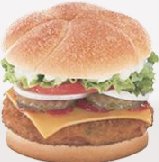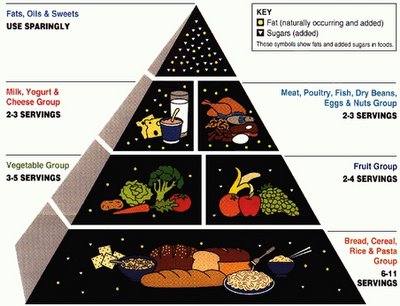
The fact that more than 20% of the United States adult population is obese presents a major public health concern. However, the failure to follow through and maintain weight loss on their own, after termination of counselling, makes the long-term success of weight loss programs difficult to achieve.
Health professionals often assume that patients will dutifully comply with recommendations simply because they are urged to do so. The magnitude of noncompliance has been well documented. Adherence to dietary programs is thought to be poorer than to medication regimens. [Glanz, K.: Dietitians' effectiveness and patient compliance with dietary regimens. JADA 84:444, 1984.] Dietary regimens are often restrictive, require changes in life-style and behaviours, interfere with family habits and customs, and are of long duration.
Weight control methods are considered a success if weight loss is maintained without expense to overall health. A goal of any successful weight reduction program is to promote permanent life-style changes. The physical and psychological consequences of repeated weight fluctuations may be more harmful than maintaining some degree of overweight. [Rock, C.L., & Coulston, A.M.: Weight control approaches: A review by the California Dietetic Association. JADA 86:44, 1988] The ultimate goal of all weight loss programs is to reduce nutritional risk factors associated with chronic diseases by increasing consumer awareness of healthy food choices.
In 1992 over 49 million people were dieting. The National Council Against Fraud estimates that quackery costs consumers between $25 billion and $50 billion a year - and nutrition fraud is the most common type. [Legislative Highlights, Journal of the American Dietetic Association. Page 648 - 650. May 1990]
Therefore to identify a quality weight loss program, and not to be misled by a "fad diet", the following indicators must be considered:* A variety of foods. Weight control programs should be individualized to fit people's life-styles and food preferences. Individualization diminishes feelings of deprivation, which lead to discouragement, bingeing, and rebound weight gain - all hallmarks of the yo-yo diet syndrome.
* Enough calories to maintain good health. Consuming less than 1200 kcal a day may result in loss of muscle instead of fat and may compromise nutritional status as a result of deficient nutrient intakes.
* Realistic weight loss goals. To lose body fat and not just water, a maximum weight loss of 2 pounds per week is advised.
* Regular exercise. Especially as we age, exercise can be the key to weight loss and maintenance of a desirable weight.
* Behaviour modification. Registered dietitians counsel people to keep lost weight off by helping them alter their eating behavior and responses to foods for the rest of their lives.
Unfortunately, a current trend toward the view that a single food is either a panacea or a poison is being gradually adopted by major health associations. This "good food/bad food" dichotomy ignores the consensus among nutritionists that all foods can be compatible with health when used in moderation as part of a balanced, varied diet.
Over the past decade people have become obsessed with the nutritional value of the food they eat. Time and again, nutrition ranks high among consumer concerns, along with food safety, convenience, quality, and value. In the United States sales in the "healthy foods" category accounted for $65 billion in 1985, but are expected to reach $98 billion by 1995.
Consumers are asking for specific information about which foods and, in particular, which brands of packaged foods to choose from when they eat or purchase foods. For example the broad guideline to avoid to much fat, saturated fat and cholesterol require specific behaviour implementations that include:
* Eat more fresh fruits and vegetables, whole grain breads and cereals, potatoes, rice noodles, dried beans, peas, and lentils.
* Choose low fat dairy products, including skim, 1%, and 2% milk, low-fat cheeses, and low-fat yogurt.
* Choose lean meats, fish, chicken and turkey.
Very Low Calorie Weight Loss Diets (VLCD)It is the position of the American Dietetic Association that while VLCD's promote rapid weight loss and may be beneficial for certain individuals, such diets have health risks and should be undertaken only with the supervision of a multidisciplinary health team with monitoring by a physician and nutrition counselling by a registered dietitian.
Side effects that have been associated with VLCD's are cold intolerance, fatigue, light-headedness, nervousness, euphoria, constipation or diarrhoea, dry skin, thinning of hair, anaemia, and menstrual irregularities.
Low body weight and Weight Loss
Excessive concern about weight may cause or lead to such unhealthy behaviors as excessive exercise, self-induced vomiting, and the abuse of laxatives or other medications. These practices may only worsen the concern about weight. Excessive exercise may also affect hormone production, increase the loss of calcium from the bones, and increase the risk of fractures.
Low body weight and rapid unintentional weight loss are highly predictive of mortality, especially in the elderly population. Weight loss is frequently reported in elderly patients.
Acute and chronic diseases are leading causes of involuntary weight loss. Whereas physical disease probably accounts for a majority of cases of involuntary weight loss, psychiatric disorders such as dementia and depression also may result in severe nutritional deficiencies.
Energy requirements decrease because of the lower basal metabolic rate and reduced physical activity. These low energy requirements make it more difficult for the elderly to obtain adequate amounts of required nutrients. Health care professionals must monitor body weight in elderly persons and carefully evaluate any cases of rapid, unintentional weight loss to prevent further deterioration of health status. [Low body weight and weight loss in the aged. JADA 90:1697-1706, 1990]
Weight loss generally consists of both lean body mass and body fat. Contributions of lean body mass and fat to total weight loss is a function of body fat content. Excessive loss of lean body mass will result in skeletal and cardiac muscle wasting and loss of visceral protein. Because lean body mass declines with age, elderly individuals who are at average or slightly above average weight may be better able to tolerate weight loss that occurs with aging or disease than underweight individuals.
Get more information
click here
 Its easy menu for clearly white skin, it uses time only 10-15 min for servers’ 4-6 people.
Its easy menu for clearly white skin, it uses time only 10-15 min for servers’ 4-6 people.










 Three servings of fruits and vegetables a day reduce the risk of stroke, but five or more servings have an even more protective effect, an new analysis of studies shows.
Three servings of fruits and vegetables a day reduce the risk of stroke, but five or more servings have an even more protective effect, an new analysis of studies shows. This menu for vegetarian, it’s easy for cook and delicious. That is good idea for Valentine’s Day.
This menu for vegetarian, it’s easy for cook and delicious. That is good idea for Valentine’s Day. Eggplants are low in calories and score practically zero for fat, with one cup containing just 38 calories.
Eggplants are low in calories and score practically zero for fat, with one cup containing just 38 calories. Pepitas are pumpkin seeds and they are often incorporated into Mexican cooking, but the seeds are also used in traditional medicine.
Pepitas are pumpkin seeds and they are often incorporated into Mexican cooking, but the seeds are also used in traditional medicine. People who fill up on vegetables, whole grains and fruit tend to have healthier blood pressure levels than their more carnivorous peers, according to an international study.
People who fill up on vegetables, whole grains and fruit tend to have healthier blood pressure levels than their more carnivorous peers, according to an international study. you have Manu for valentine day?, I have delicious Manu for diner is Fantastic Chocolate Cake. It's easy!
you have Manu for valentine day?, I have delicious Manu for diner is Fantastic Chocolate Cake. It's easy! Eating more than the recommended five portions of fruit and vegetables a day can cut risk of stroke, a study says.
Eating more than the recommended five portions of fruit and vegetables a day can cut risk of stroke, a study says. Following a vegan diet doesn't mean you have to give up on baked goods like home-made chocolate chip cookies. Follow this recipe to bake up a batch of homestyle cookies without the butter and eggs.
Following a vegan diet doesn't mean you have to give up on baked goods like home-made chocolate chip cookies. Follow this recipe to bake up a batch of homestyle cookies without the butter and eggs. Thai Charoen Commercial Group (TCC) is set to take a significant stake in the country's largest green-tea producer, Oishi Group Plc, according to sources.
Thai Charoen Commercial Group (TCC) is set to take a significant stake in the country's largest green-tea producer, Oishi Group Plc, according to sources. Without a little romance life would certainly be missing those shared moments of tenderness and passion that make us feel special. Thoughts of love bring contentment to the heart, and add fervor to our dreams. Love makes us smile more often, makes the heart beat a little faster, and sparks our life to know that someone cares about us.
Without a little romance life would certainly be missing those shared moments of tenderness and passion that make us feel special. Thoughts of love bring contentment to the heart, and add fervor to our dreams. Love makes us smile more often, makes the heart beat a little faster, and sparks our life to know that someone cares about us. IF DECEMBER is the month of indulgence, January is for atonement, and the modern equivalent of a hairshirt - the detox kit - is flying off the shelves at chemists and health food shops as Sydneysiders try to purge their bodies of the excesses of the festive season.
IF DECEMBER is the month of indulgence, January is for atonement, and the modern equivalent of a hairshirt - the detox kit - is flying off the shelves at chemists and health food shops as Sydneysiders try to purge their bodies of the excesses of the festive season. What you can eat depends on what type of Vegetarian you are. The main types are listed below. Some people call themselves Veggie's if they eat fish, but this is not the case, as you can see below. If Vegetarians do eat eggs, they usually use free-range eggs. Those that eat cheese will only eat Vegetarian Cheese, as some cheeses are made using rennet from a cow's stomach. More and more cheeses are using a Vegetarian alternative to this. We have worked on a comparison table that you can use to help decide which type of vegetarian you are or desire to be.
What you can eat depends on what type of Vegetarian you are. The main types are listed below. Some people call themselves Veggie's if they eat fish, but this is not the case, as you can see below. If Vegetarians do eat eggs, they usually use free-range eggs. Those that eat cheese will only eat Vegetarian Cheese, as some cheeses are made using rennet from a cow's stomach. More and more cheeses are using a Vegetarian alternative to this. We have worked on a comparison table that you can use to help decide which type of vegetarian you are or desire to be. A extract from black elderberries could be used to combat the bird flu virus, according to research.
A extract from black elderberries could be used to combat the bird flu virus, according to research. After experimenting with vegetarian eating for a while, I’m ready to go full-time. What’s the best way?
After experimenting with vegetarian eating for a while, I’m ready to go full-time. What’s the best way? McDonald's have recently changed their vegetarian option. They used to have a standard veggie burger called Veggie Deluxe but since they introduced Salad's Plus, they have now introduced the Quorn Premiere. Also available are salads. Vegetarians can choose the Garden Salad instead of fries. Extensive vegetarian and allergy lists are available on their website. No kid's vegetarian options are yet available.
McDonald's have recently changed their vegetarian option. They used to have a standard veggie burger called Veggie Deluxe but since they introduced Salad's Plus, they have now introduced the Quorn Premiere. Also available are salads. Vegetarians can choose the Garden Salad instead of fries. Extensive vegetarian and allergy lists are available on their website. No kid's vegetarian options are yet available. Burger King have successfully had vegetarian products for some time now. Vegetarians have two options to choose from. There is the Veggie Burger (which is approved by the vegetarian society) and the Bean Burger. Also available are salads very similar to McDonalds (but I believe Burger King were the first to introduce them). Extensive vegetarian and allergy lists are available on their website. A kid's vegetarian option IS available.
Burger King have successfully had vegetarian products for some time now. Vegetarians have two options to choose from. There is the Veggie Burger (which is approved by the vegetarian society) and the Bean Burger. Also available are salads very similar to McDonalds (but I believe Burger King were the first to introduce them). Extensive vegetarian and allergy lists are available on their website. A kid's vegetarian option IS available. KFC used to sell what they called a
KFC used to sell what they called a  There are lots of ways to lose weight. But if you plan to lose more than 15 to 20 pounds, or if you take medication regularly, you should be evaluated by your doctor before beginning your plan. Your doctor or registered dietitian can help you arrive at a sensible weight loss goal. You may not need to lose as much weight for your health as you think. Sometimes the “cosmetic” desire to lose requires a great deal more loss than what is needed to lower your health risk.
There are lots of ways to lose weight. But if you plan to lose more than 15 to 20 pounds, or if you take medication regularly, you should be evaluated by your doctor before beginning your plan. Your doctor or registered dietitian can help you arrive at a sensible weight loss goal. You may not need to lose as much weight for your health as you think. Sometimes the “cosmetic” desire to lose requires a great deal more loss than what is needed to lower your health risk. The Pyramid is a guide for customers compare their diet and physical activities to current health. Individuals can enter the foods they eat and their physical activities for a day and obtain the energy balance between them.
The Pyramid is a guide for customers compare their diet and physical activities to current health. Individuals can enter the foods they eat and their physical activities for a day and obtain the energy balance between them. Summary: It is very easy for a
Summary: It is very easy for a  When the holy
When the holy  Chinese mustard cabbage with mushroom recipe in Thai called Phak Guang Tong Pad Hed. This manu has benefit for health because low fat and has vitamins.
Chinese mustard cabbage with mushroom recipe in Thai called Phak Guang Tong Pad Hed. This manu has benefit for health because low fat and has vitamins. Some people choose
Some people choose  Rice (Khao Jao): There are many different varieties of rice. We recommend Thai Jasmine rice. It has a flavor and aroma similar to that of roasted popcorn or nuts, and a soft, moist texture that clings together. In the north eastern part of
Rice (Khao Jao): There are many different varieties of rice. We recommend Thai Jasmine rice. It has a flavor and aroma similar to that of roasted popcorn or nuts, and a soft, moist texture that clings together. In the north eastern part of  The fact that more than 20% of the United States adult population is obese presents a major public health concern. However, the failure to follow through and maintain weight loss on their own, after termination of counselling, makes the long-term success of weight loss programs difficult to achieve.
The fact that more than 20% of the United States adult population is obese presents a major public health concern. However, the failure to follow through and maintain weight loss on their own, after termination of counselling, makes the long-term success of weight loss programs difficult to achieve.







